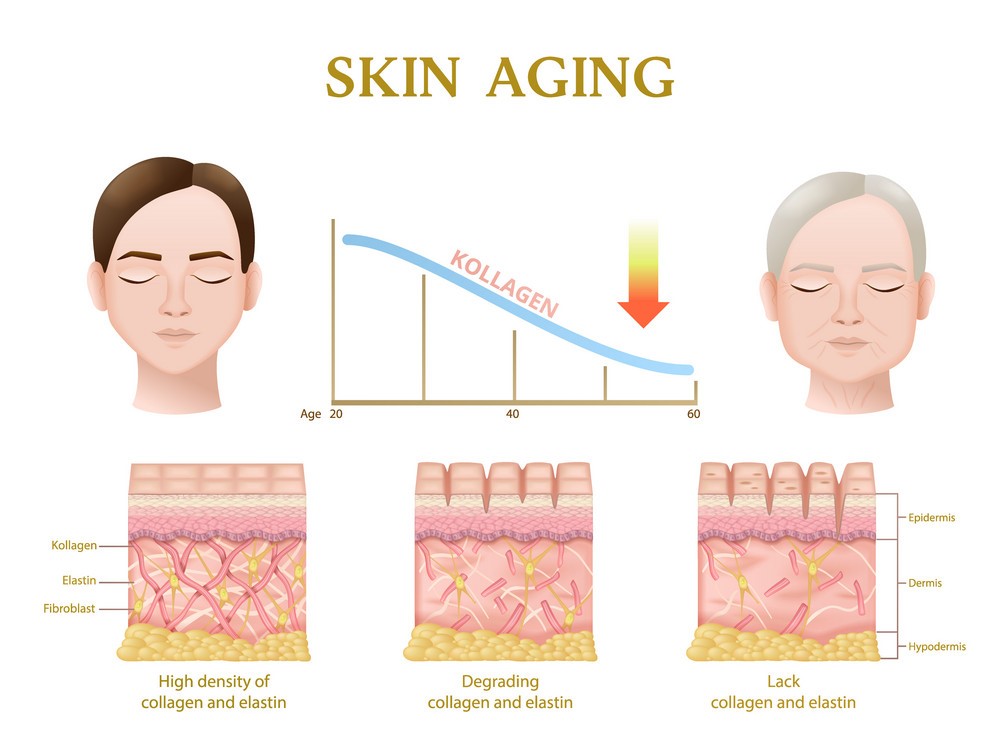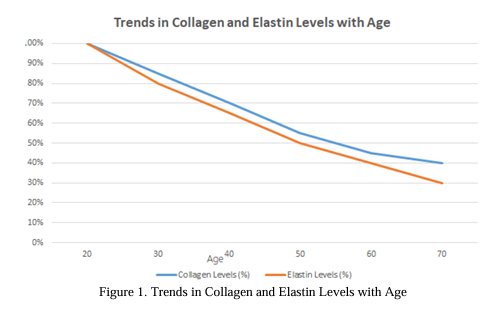
Skin aging is a natural biological process that is influenced by intrinsic factors such as genetics and cellular senescence, and extrinsic factors such as UV exposure, pollution, and lifestyle choices. As the largest organ of the human body, the skin plays a critical role in protecting against environmental aggressors and maintaining overall health. However, as we age, the skin undergoes significant changes, including collagen and elastin degradation, reduced cell turnover, and increased oxidative stress. These changes lead to visible signs of aging such as wrinkles, sagging, and uneven skin tone, which not only affect appearance but also self-esteem and quality of life. The global demand for effective anti-aging solutions is rapidly increasing, driven by the increasing aging population and increasing awareness of skin care. According to market research, the anti-aging skin care market is projected to reach $421.4 billion by 2030, reflecting the widespread desire to maintain youthful and healthy skin.
Summary of Key Advances in Protein-, Peptide-, and Peptide-Derivative-Based Anti-Aging Technologies
The field of anti-aging skin care has seen significant advances in recent years driven by the development of protein- and peptide-based technologies. Key advances include the use of peptides such as palmitoyl pentapeptide-4 (Matrixyl) and acetyl hexapeptide-8 (Argyraline) to stimulate collagen production, improve skin elasticity, and reduce wrinkles. Recombinant collagen and elastin have emerged as sustainable and highly effective alternatives to animal-derived proteins, offering superior results in skin regeneration and repair. In addition, advances in drug delivery systems, such as nanotechnology and AI-based formulations, have increased the stability and penetration of peptides, making them more effective than ever. 6.2 Implications for the Future of Skin Care and Beauty Treatments
Innovations in protein- and peptide-based technologies are poised to redefine the skin care and beauty industries. Personalized skin care, driven by genetic profiling and molecular mapping of the skin, allows for highly customized treatments tailored to individual needs. Combining peptides with other advanced technologies, such as stem cells and microbiome modulation, offers comprehensive anti-aging solutions that address multiple skin concerns simultaneously. In addition, the shift toward sustainable and ethical practices, including plant-based peptides and biodegradable packaging, is making skin care more environmentally friendly and accessible to a wider audience.

A final note on how peptide-based innovations are transforming skin rejuvenation
Peptide-based innovations have enormous potential to revolutionize skincare by providing targeted, effective, and sustainable solutions for skin rejuvenation. Peptides’ ability to stimulate collagen, increase elasticity, and repair skin at the molecular level makes them a cornerstone of modern anti-aging treatments. As emerging technologies such as artificial intelligence, nanotechnology, and personalized medicine evolve, the potential for peptide-based skincare to deliver transformative results will only increase.

In the coming years, we can expect to see more groundbreaking advances, such as multifunctional peptides that combine anti-aging, anti-inflammatory, and antioxidant properties, real-time skin care monitoring via wearable devices, and universal access to advanced anti-aging treatments. These advances promise to improve the health and appearance of skin while paving the way for a more personalized, ethical, and sustainable approach to beauty and wellness. As a result, the future of skin care lies in the continued innovation and integration of protein- and peptide-based technologies. These advances not only promise to improve the health and appearance of skin, but also pave the way for a more personalized, ethical, and sustainable approach to beauty and wellness.
Translation: by Oxin Medical Collection